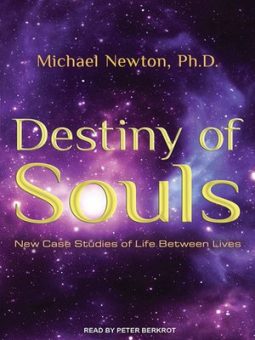2. Death, Grief and Comfort
Denial and Acceptance
|
|
Surviving the loss of a love is one of life’s hardest trials. It is well known that the process of grief survival involves going through the initial shock, then coping with denial, anger, depression and finally arriving at some sort of acceptance. Each one of these stages of emotional turmoil varies in length of time and intensity from months up to years. Losing someone with whom we had a deep bond can bring such despair that it feels as though we are in a bottomless pit where escape is impossible because death seems so final.
In Western society, the belief in the finality of death is an obstacle to healing. We have a dynamic culture where the possibility of our loss of personhood is unthinkable. The dynamics of death in a loving family is akin to a successful stage play that is thrown into disarray due to the loss of one of its stars. The supporting cast flounders around over the need for script changes. Dealing with this huge hole in the story left by the departed affects the future roles of the remaining players. There is a dichotomy here because when souls are in the spirit world preparing for a new life, they laugh about being in rehearsals for their next big stage play on Earth. They know all roles are temporary.
In our culture, we do not prepare properly for death during life because it is something we cannot fix or change. The apprehension about death begins to gnaw at us as we get older. It is always there, lurking in the shadows, regardless of our beliefs about what happens after death. In discussing life after death on my lecture tours, I was surprised to find that many people who held very traditional religious views seemed to be the most fearful of death.
The fear for most of us comes from the unknown. Unless we have had a near-death experience or undergone a past life regression where we remember what death felt like in a former life, death is a mystery. When we must face death either as a participant or as an observer it can be painful, sad and frightening. The healthy don’t want to talk about it and frequently neither do the seriously ill. Thus, our culture views death as an abhorrence.
In the twentieth century there were many changes in public attitudes about life after death. During the early decades of the century most people held traditional views that they had only one life to live. In the last third of the twentieth century in the U.S. it was estimated some 40 percent believed in reincarnation. This change in attitude has made acceptance of death a little easier for those people who have become more spiritual and are pulling away from a belief in oblivion after life.
One of the most meaningful aspects of my work in the spirit world is learning from the perspective of the departed soul what it feels like to die and how souls try to reach back and comfort those left behind. In this chapter I hope to validate that what you sense deep inside after a loss is not just wishful thinking. The person you love is not really gone. Consider, too, what I said in the last chapter about soul duality. Part of your energy was left behind in the spirit world at the time of incarnation. When your love arrives back home again, you will already be there waiting with that portion of your energy which was left behind. This same energy is held in reserve for unification with the returning soul. One of the significant revelations of my research was to learn that soulmates are never truly apart from each other.
The sections that follow illustrate certain methods used by souls to communicate with those they love. These techniques may begin right after physical death and can be very intense. Nevertheless, the departing soul is anxious to get moving on their way home, as the density of Earth does drain energy. In death, suddenly the soul is released and given freedom. Yet if we have the need, souls are able to contact us on a regular basis from the spirit world.
Quiet contemplation and meditation should bring a greater receptivity to the departed and provide your consciousness with a heightened sense of awareness. No verbal messages from the other side are necessary. Just removing the blocks of self-doubt and opening your mind to even the possible presence of someone you love will assist the process of grief recovery.
Pages: 1 2 3 4 5 6 7 8 9 10 11 12 13 14 15 16 17 18 19 20 21 22 23 24 25 26 27 28 29 30 31 32 33 34 35 36 37 38 39 40 41 42 43 44 45 46 47 48 49 50 51 52 53 54 55 56 57 58 59 60 61 62 63 64 65 66 67 68 69 70 71 72 73 74 75 76 77 78 79 80 81 82 83 84 85 86



